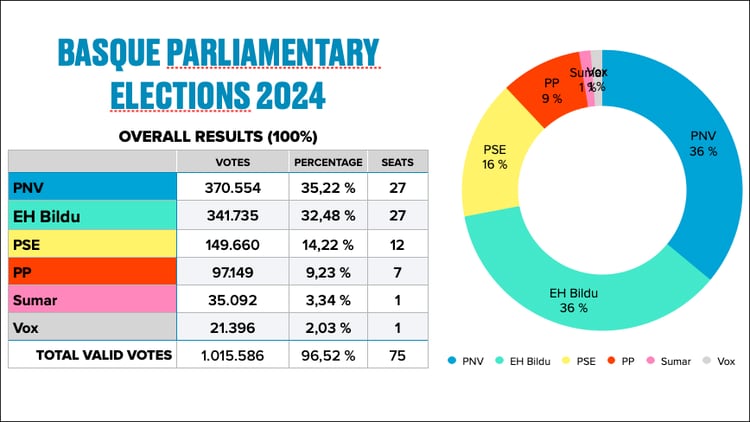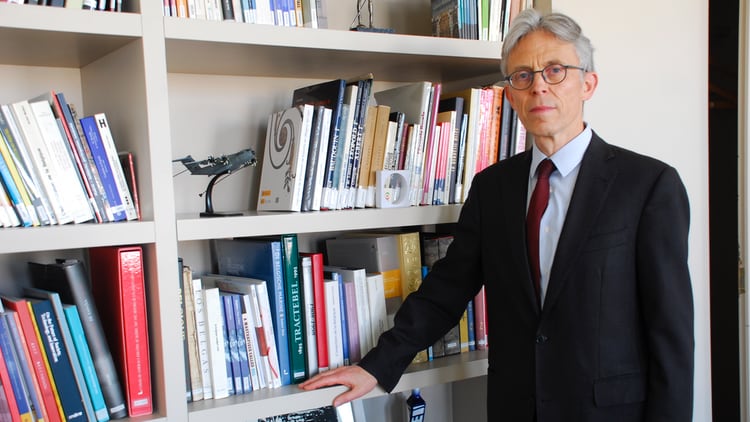The Diplomat
The Basque Nationalist Party (PNV) and the Socialist Party of Euskadi (PSE) will repeat the coalition government that will allow the candidate of the nationalist party, Imanol Pradales, to be the new president of the autonomous executive, after the elections held yesterday in the Basque Country.
With 98.5% of the votes counted, the PNV (nationalist, right-wing) and EH Bildu (pro-independence, left-wing) obtained the same number of seats (27), although the former narrowly won the number of votes, barely 30,000 more than EH Bildu, confirming the considerable rise that all the polls predicted for the pro-independence party during the election campaign.
By provinces, the PNV maintains its hegemony in Biscay, while EH Bildu snatches first place in Gipuzkoa and Alava. This explains why, while the PNV loses four MPs compared to the 2020 elections, EH Bildu gains six.
The third political force in the new Basque Parliament will be the PSE, which gains two more seats than in the 2020 elections, going from 10 to 12. With them, it will once again help the PNV, which has been governing the Basque Country for 44 years, with the sole exception of the 2009-2012 period, when the ‘lehendakari’ was the socialist Patxi López.
The People’s Party also gained one MP and will have seven, making it the fourth largest party in the Basque Country. Sumar and Vox have been left behind with one seat each, while Podemos disappears from this autonomous region, where until now they had six representatives.
Pending the counting of votes from abroad, in principle these results will allow the nationalists and socialists to reach an agreement to form a government, since between them both parties have 39 seats, one more than the number needed for an absolute majority in the Basque Parliament, made up of 75 representatives.
Some 62 percent of the almost 1.8 million Basques entitled to vote went to the polls, which is approximately 10 points higher than the turnout four years ago.







